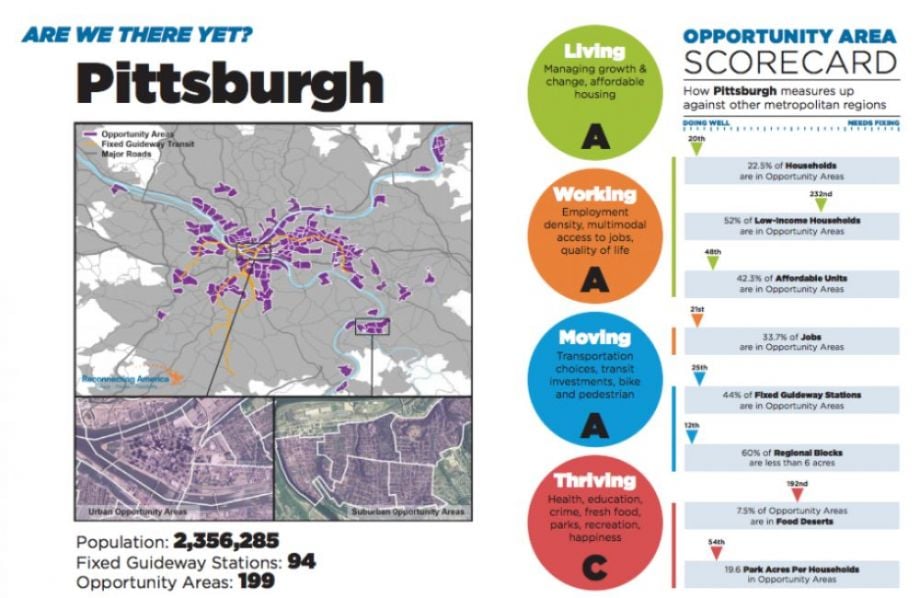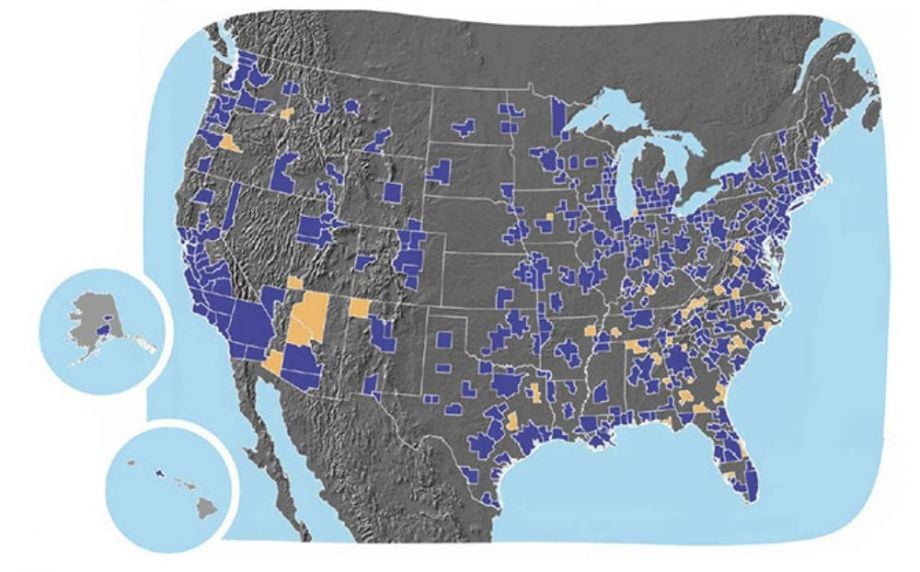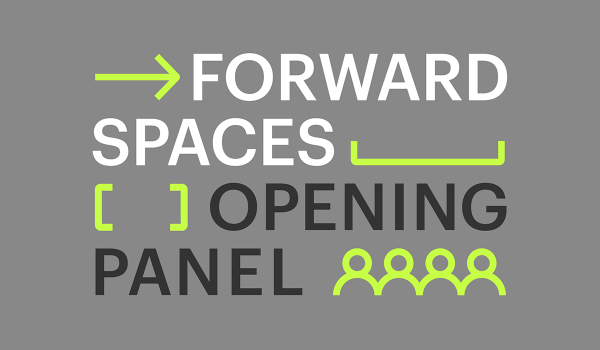Reconnecting America, a D.C.-based national non-profit that addresses community development challenges, this month released a study report tracking the progress of 366 Metropolitan Statistical Areas (MSAs) to see if they had reached a mythical “there” status. To the report’s authors, “getting there” means creating a community that offers residents what they need to lead healthy, sustainable lives.
To this end, the report has graded the MSAs based on four criteria: Living, working, moving and thriving. It also created comprehensive scorecards for some of the major metropolitan regions. The metrics for each category have been broken down on Reconnecting America’s website, but essentially measure how well the region is creating affordable communities and enhancing regional growth with transportation options, reduced auto dependence and complete, vibrant communities, including access to healthy foods, physical activity and general well being.

Pittsburgh scorecard: Credit: Reconnecting America
These metrics have been combined to asses how close the MSAs are to being a “complete community,” referring to “places where people can live, work, move, and thrive in a healthier, more equitable, and more economically competitive way.” Within these MSAs, the report has also identified “opportunity areas,” characterized by smaller blocks or moderate density housing or jobs. These are areas that have some of the basic infrastructure needed to help the region get “there,” and should therefore be considered the starting points for creating complete communities.
Considering that the measurements focus heavily on transportation, it’s not at all shocking that regions with more transit stations generally received higher-scoring report cards. New York, San Francisco, San Jose, Denver and Portland, for instance, received all As. So did Trenton, Spokane, Missoula, Mont. and Lincoln, Neb. — perhaps a bit more surprising, since these metros don’t all have fixed transit systems. Those that scored all Ds? Riverside, Calif., Greensboro, N.C. and Anniston, Ala., plus many more located primarily in the Southeast.
The report recognizes that plenty of other, more immeasurable factors — a community’s history, cultural traditions, aesthetics, food, music, art, not to mention proximity of friends and family — are not considered in this report. Numerous other examples highlight local initiatives that are helping communities get “there,” but that could not be incorporated into this data set. Despite this, the report could serve as a valuable tool for regional leaders to use when prioritizing activities and investments.


_600_350_80_s_c1.jpg)













